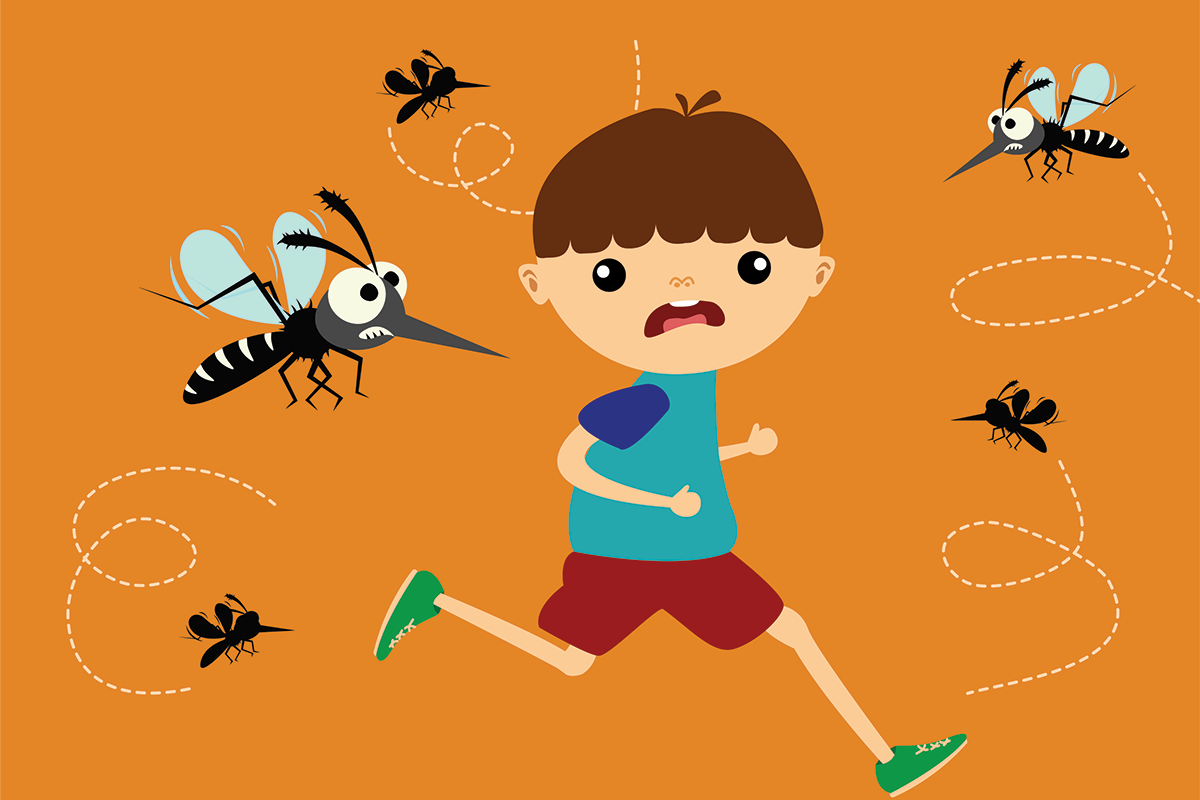Just Say No to Mosquitoes

If you are visiting a country where the climate is wet and warm, you are likely to be bitten by a mosquito. If you’re lucky, your only discomfort will be an itchy welt. And if you’re not?
Well, consider that just one species of mosquito—the Aedes—can carry chikungunya, dengue fever, lymphatic filariasis, Rift Valley fever, yellow fever, and Zika.
In all, there are about 3,500 mosquito species, many of which carry disease. Travelers should always protect themselves from these tiny vectors.
Consider malaria and yellow fever. Although both diseases were eliminated from the United States in the 20th century, they still affect millions of people worldwide. The 2018 edition of the CDC Yellow Book, which provides health information for international travel, devotes more than 50 pages to travel information about malaria and yellow fever in 247 countries, islands, and territories.
Malaria occurs in Africa, Asia, parts of the Caribbean, Eastern Europe, and the South Pacific. Yellow fever is also widespread, occurring primarily in Africa, South America, and parts of Central America. Many countries require proof of yellow fever vaccination as a condition of entry.
The risk for these diseases varies from person to person and country to country, as well as by type of activity, says Jesse Waggoner, a physician with Emory TravelWell Center.
“Your risk is much lower if you’re going to a city and staying in a hotel with air-conditioning,” says Waggoner. “If you’re going to a rural area or planning to spend a lot of time outdoors, you’ll need to be more mindful of mosquitoes.”
Prevention also varies by disease. Malaria can be thwarted by taking a pill once a day or once a week, before and after a trip. Vaccines are available for yellow fever and Japanese encephalitis, a disease endemic to Asia.
Currently, no vaccines or medicines are available for dengue fever, chikungunya, West Nile, or Zika virus. In 2016, Zika occurred at an unusually high rate in Brazil, where children born to infected mothers had a greater number of birth defects. The Zika virus infection rate has since decreased in Brazil, which scientists attribute to greater immune resistance, also known as herd immunity, in the population.
For now, the best prevention for these diseases is mosquito avoidance. And should you become ill with a high fever, headache, body aches, and nausea while traveling, don’t put off seeking medical attention. “If you have a fever that’s out of the ordinary for you, don’t wait for it to come down. That can get you into trouble,” Waggoner advises. “Get to someplace where you can be evaluated. If you’re not sure where to go, contact us at TravelWell. We can recommend good medical facilities in major cities. Depending on how you are doing, you may be able to come home.”
When planning overseas travel, allow a month or more to get vaccines or medicine. To learn more, call Emory TravelWell Center, Emory University Hospital Midtown, 404-686-5885.
Email the Editor



